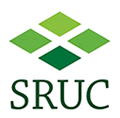About the Project
Applications are sought from exceptional candidates with backgrounds in mathematical or related disciplines, for the above PhD position to carry out research into the development and application of mathematical approaches to solving problems in the aquaculture industry. The studentship provides the opportunity to acquire highly transferrable skills including experience in developing state-of-the-art methods for stochastic and statistical modelling, and will develop tools for quantifying and controlling disease in aquaculture systems.
Aquaculture is the fastest growing food production sector in the world, currently worth $120bn, and accounts for 17% of animal protein consumed worldwide, a number set to double in the next 20 years. In the UK, fish farming is led by salmon production, worth over £600m per year, and trout, worth over £50m. In the context of the growing population, aquaculture has great potential to contribute to sustainable food supplies, and is thus vital to food security. However, to achieve this vision a key requirement is to reduce both losses to disease and the social, environmental and economic costs of controlling outbreaks.
This is a joint project between BioSS, SRUC and the University of Stirling. BioSS are at the forefront of the development and application of mathematical modelling and statistical methods for a wide range of applications. SRUC’s Disease Systems team use mathematical modelling, experimental and statistical approaches to understand and quantify the biological drivers behind a range of issues in the agricultural sector. The University of Stirling’s Institute of Aquaculture’s research focuses on fundamental questions relating to strategies for sustainable aquaculture, and is the biggest aquaculture institute of its type in the world. The project also involves the Dept of Computing Science and Mathematics at Stirling, who have considerable experience in mathematical approaches to problems in aquaculture.
The mathematical methods developed in this project will be applied to diseases such as infectious pancreatic necrosis (IPN) and pancreas disease (PD), which are responsible for significant economic losses to the industry. The work will also have applicability to other aspects of aquacultural epidemiology and, more broadly in, ecology and epidemiology. It is anticipated that this will initiate a line of research with significant future potential. A key aim is to develop advanced statistical tools including data augmented MCMC and related methods to characterise and quantify disease spread and progression, including the effect of host genetic factors from key aquaculture data sets. This will provide a means to estimate critical parameters as well as extend understanding of the potential performance of control options.
The stipend for this studentship is £14,057 pa (subject to revision in 2016) over 3.5 years, with an anticipated start date of 1st September 2016 (although an earlier start date is negotiable depending on circumstances). The studentship is funded to pay the tuition fees of UK/European Union nationals only.The student will be based at SRUC’s Roslin Institute Building or Stirling, registered for a PhD at the University of Stirling, and will be expected to make frequent visits to all partner institutions. It is expected that the student will present their work at national and international conferences, as well as attending workshops and summer schools. It is anticipated that the successful candidates will foster strong links across all of the research groups involved as well as more broadly with other partner organisations and beyond.
Funding Notes
In addition to mathematical abilities (with a 2:1 or higher in mathematics or related discipline), candidates should be in possession of strong IT skills and be able to demonstrate the ability to communicate research both at a general level and to scientists from a range of disciplines. Experience with any of stochastic processes, dynamical systems, complex systems, Bayesian statistics, MCMC, R and C++, as well as experience working with and understanding research literature will all be highly beneficial.
References
To discuss these posts informally potential candidates are invited to contact Dr Ross Davidson (ross.davidson@sruc.ac.uk) or Dr Andrew Hoyle (ash@maths.stir.ac.uk). To apply please fill out the online application form available at www.sruc.ac.uk/jobs including a CV and covering letter explaining why you are suited to the post. Alternatively application packs can be requested from audrey.johnstone@sruc.ac.uk Tel 0131 535 4028 quoting reference SRUC/1030397/Davidson.
The closing date for the return of applications is 5pm on Friday 15th April 2016. We expect to hold interviews on or around Friday 29th April 2016.

 Continue with Facebook
Continue with Facebook

